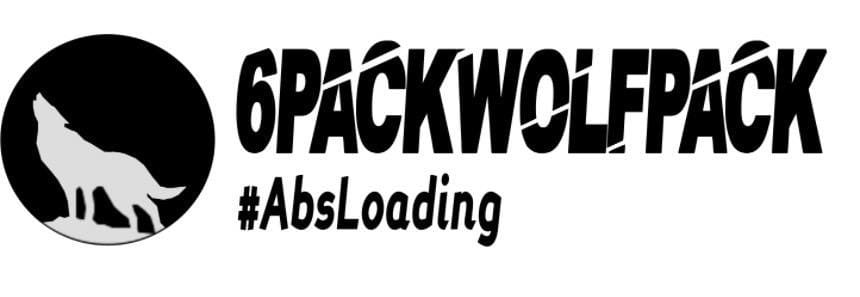Bodybuilding is a discipline that revolves around building muscle mass, improving strength, and sculpting an aesthetically pleasing physique. For those involved in the sport, the path to achieving these goals can take two distinct routes: natural bodybuilding and enhanced bodybuilding. Both approaches have their own methods, challenges, and ethical considerations, and understanding the difference between them is essential for anyone pursuing bodybuilding at any level.
Natural bodybuilding is the approach where athletes avoid performance-enhancing drugs (PEDs) and substances like anabolic steroids, growth hormones, or other artificial supplements that accelerate muscle growth. Instead, natural bodybuilders rely on a strict regimen of training, nutrition, and recovery to optimize their muscle-building potential. Natural bodybuilders focus on maintaining a healthy lifestyle, using natural supplementation such as protein, creatine, and vitamins to help enhance performance within their physiological limits.
The foundation of natural bodybuilding is consistency in training and nutrition. Natural bodybuilders typically train with a focus on hypertrophy (muscle growth), employing resistance training programs designed to maximize muscle fiber recruitment and promote optimal recovery. Nutrition plays an even more significant role for natural athletes since they are entirely reliant on their body’s natural anabolic processes. A carefully planned diet that prioritizes protein intake, adequate caloric consumption, and nutrient timing is essential. The goal is to enhance muscle growth while keeping fat levels in check.
Natural bodybuilders also place a heavy emphasis on recovery, since their bodies don’t receive the same accelerated recovery benefits that come with the use of PEDs. Proper sleep, active rest, stretching, and massage therapy are often used to help support the body’s natural ability to repair and grow muscle tissue.
On the other hand, enhanced bodybuilding refers to athletes who incorporate PEDs into their regimen to help accelerate muscle growth, enhance strength, and improve recovery times. Enhanced bodybuilders use substances like anabolic steroids, testosterone replacement therapy (TRT), growth hormone (HGH), and insulin to enhance their physique beyond what could be achieved through natural means. These substances can significantly increase muscle mass and strength, allowing enhanced bodybuilders to train with greater intensity, recover more quickly, and see faster progress in a shorter time frame.
The use of PEDs in enhanced bodybuilding can lead to substantial gains in size and strength, with many athletes pushing their bodies to levels of muscularity that are nearly impossible for natural athletes to achieve. However, enhanced bodybuilding comes with its risks. The use of steroids and other PEDs can have serious side effects, including liver damage, cardiovascular issues, hormonal imbalances, mood swings, and potential long-term health complications. Additionally, the ethical implications of using PEDs in competitive bodybuilding have sparked debates, as it can create an uneven playing field between those who choose to stay natural and those who opt for performance enhancement.
The distinction between natural and enhanced bodybuilding also plays a significant role in competitions. Natural bodybuilding organizations, such as the International Natural Bodybuilding Association (INBA) and the World Natural Bodybuilding Federation (WNBF), enforce strict drug testing policies to ensure that participants compete without the use of PEDs. These organizations typically have stringent regulations and regular testing to maintain the integrity of their competitions.
Enhanced bodybuilding, on the other hand, often takes place within open categories where athletes are free to use PEDs as part of their training regimen. In these competitions, athletes are judged based on their muscle size, symmetry, conditioning, and overall presentation, but there is no restriction on the substances used to achieve their physique. As a result, the standards of muscularity and conditioning can be significantly higher, leading to more extreme physiques compared to natural bodybuilding.
When considering the two approaches, it’s important to highlight the longevity of a bodybuilding career. Natural bodybuilders often have to take a slower, more sustainable approach to muscle building, focusing on long-term health and sustainable progress. Since they rely on natural methods, natural athletes may experience slower gains compared to enhanced bodybuilders, but the risk of health issues is significantly lower. Additionally, natural athletes can often maintain their physique well into later years, as they don’t rely on substances that might impact their health over time.
Enhanced bodybuilding, while it can produce faster results, often comes with an increased risk of burnout, injury, and health complications. Many athletes in enhanced bodybuilding experience significant muscle loss when they come off PEDs or retire from the sport, as their bodies are no longer supported by the performance-enhancing substances. This can lead to a less sustainable bodybuilding career, as athletes may struggle to maintain their enhanced size and strength without continuous use of PEDs.
Choosing between natural and enhanced bodybuilding ultimately comes down to individual goals, ethics, and personal beliefs. Some athletes prefer the challenge and discipline of natural bodybuilding, while others may opt for the faster gains and extreme physiques associated with enhanced bodybuilding. It’s also essential to note that bodybuilding, regardless of the approach, requires an immense commitment to training, nutrition, and recovery.
For those considering either route, it’s essential to educate oneself on the risks, rewards, and long-term implications of their chosen approach. Natural bodybuilding can provide a fulfilling, healthy, and rewarding experience for those who prioritize longevity and wellness, while enhanced bodybuilding can lead to faster results but comes with significant health risks and ethical considerations.
Understanding what you want to achieve and making an informed decision about how to get there will ultimately shape your bodybuilding journey.


